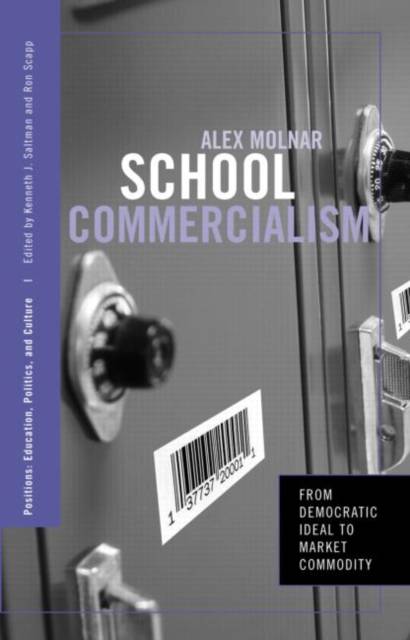
Bedankt voor het vertrouwen het afgelopen jaar! Om jou te bedanken bieden we GRATIS verzending (in België) aan op alles gedurende de hele maand januari.
- Afhalen na 1 uur in een winkel met voorraad
- In januari gratis thuislevering in België
- Ruim aanbod met 7 miljoen producten
Bedankt voor het vertrouwen het afgelopen jaar! Om jou te bedanken bieden we GRATIS verzending (in België) aan op alles gedurende de hele maand januari.
- Afhalen na 1 uur in een winkel met voorraad
- In januari gratis thuislevering in België
- Ruim aanbod met 7 miljoen producten
Zoeken
Omschrijving
Pizza Hut's Book It! program rewards students with pizza for meeting their reading goals. Toys R Us paid a Kansas school five dollars for each student who took its toy survey. Cisco Systems donated internet access to a California elementary school, asking in return for the school choir to sing the company's praises while wearing Cisco t-shirts.
Kids today face a barrage of corporate messages in the classroom. In School Commercialism, education expert Alex Molnar traces marketing in American schools over the last twenty-five years, raising serious questions about the role of private corporations in public education. Since the 1990s, Molnar argues, commercial activities have shaped the structure of the school day, influenced the curriculum, and determined whether children have access to computers and other technologies. He argues convincingly against advertisers' assertion that their contributions are a win-win proposition for cash-strapped schools and image-conscious companies.
From the marketing of unhealthy foods to privatizing reforms such as the Edison Schools and Knowledge Universe, School Commercialism tracks trends that are more pervasive than many parents realize and shows how we might recapture schools to better serve the public interest.
Kids today face a barrage of corporate messages in the classroom. In School Commercialism, education expert Alex Molnar traces marketing in American schools over the last twenty-five years, raising serious questions about the role of private corporations in public education. Since the 1990s, Molnar argues, commercial activities have shaped the structure of the school day, influenced the curriculum, and determined whether children have access to computers and other technologies. He argues convincingly against advertisers' assertion that their contributions are a win-win proposition for cash-strapped schools and image-conscious companies.
From the marketing of unhealthy foods to privatizing reforms such as the Edison Schools and Knowledge Universe, School Commercialism tracks trends that are more pervasive than many parents realize and shows how we might recapture schools to better serve the public interest.
Specificaties
Betrokkenen
- Auteur(s):
- Uitgeverij:
Inhoud
- Aantal bladzijden:
- 192
- Taal:
- Engels
- Reeks:
Eigenschappen
- Productcode (EAN):
- 9780415951326
- Verschijningsdatum:
- 23/06/2005
- Uitvoering:
- Paperback
- Formaat:
- Trade paperback (VS)
- Afmetingen:
- 128 mm x 198 mm
- Gewicht:
- 254 g

Alleen bij Standaard Boekhandel
+ 158 punten op je klantenkaart van Standaard Boekhandel
Beoordelingen
We publiceren alleen reviews die voldoen aan de voorwaarden voor reviews. Bekijk onze voorwaarden voor reviews.









